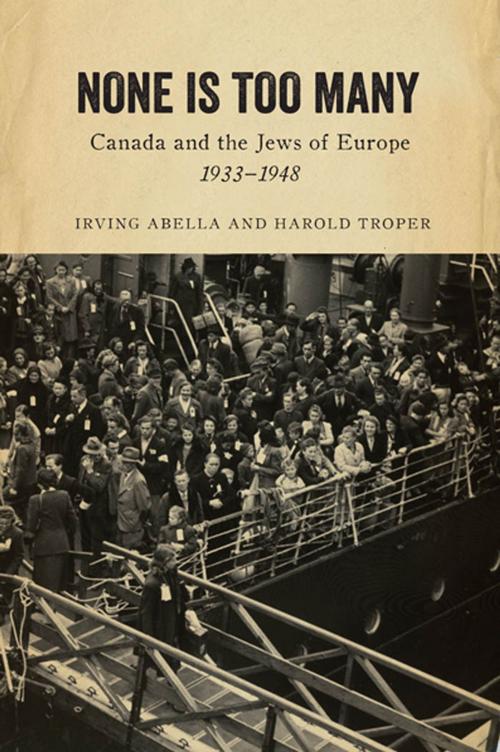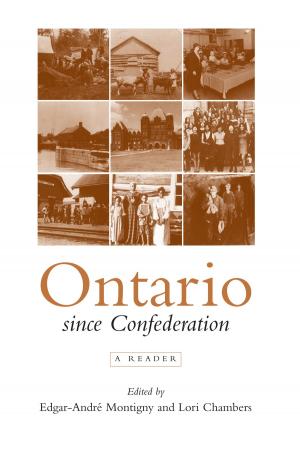None Is Too Many
Canada and the Jews of Europe, 1933-1948
Nonfiction, History, Canada, Jewish, Social & Cultural Studies, Social Science| Author: | Irving Abella, Harold Troper | ISBN: | 9781442663855 |
| Publisher: | University of Toronto Press, Scholarly Publishing Division | Publication: | August 14, 2012 |
| Imprint: | Language: | English |
| Author: | Irving Abella, Harold Troper |
| ISBN: | 9781442663855 |
| Publisher: | University of Toronto Press, Scholarly Publishing Division |
| Publication: | August 14, 2012 |
| Imprint: | |
| Language: | English |
Winner of the National Jewish Book Award (Holocaust Category)
Winner of the Canadian Historical Association John A. Macdonald Prize
Featured in The Literary Review of Canada 100: Canada’s Most Important Books
[This] is a story best summed up in the words of an anonymous senior Canadian official who, in the midst of a rambling, off-the-record discussion with journalists in 1945, was asked how many Jews would be allowed into Canada after the war … ‘None,’ he said, ‘is too many.’
From the Preface
One of the most significant studies of Canadian history ever written, None Is Too Many conclusively lays to rest the comfortable notion that Canada has always been an accepting and welcoming society. Detailing the country’s refusal to offer aid, let alone sanctuary, to Jews fleeing Nazi persecution between 1933 and 1948, it is an immensely bleak and discomfiting story – and one that was largely unknown before the book’s publication.
Irving Abella and Harold Troper’s retelling of this episode is a harrowing read not easily forgotten: its power is such that, ‘a manuscript copy helped convince Ron Atkey, Minister of Employment and Immigration in Joe Clark’s government, to grant 50,000 “boat people” asylum in Canada in 1979, during the Southeast Asian refugee crisis’ (Robin Roger, The Literary Review of Canada). None Is Too Many will undoubtedly continue to serve as a potent reminder of the fragility of tolerance, even in a country where it is held as one of our highest values.
Winner of the National Jewish Book Award (Holocaust Category)
Winner of the Canadian Historical Association John A. Macdonald Prize
Featured in The Literary Review of Canada 100: Canada’s Most Important Books
[This] is a story best summed up in the words of an anonymous senior Canadian official who, in the midst of a rambling, off-the-record discussion with journalists in 1945, was asked how many Jews would be allowed into Canada after the war … ‘None,’ he said, ‘is too many.’
From the Preface
One of the most significant studies of Canadian history ever written, None Is Too Many conclusively lays to rest the comfortable notion that Canada has always been an accepting and welcoming society. Detailing the country’s refusal to offer aid, let alone sanctuary, to Jews fleeing Nazi persecution between 1933 and 1948, it is an immensely bleak and discomfiting story – and one that was largely unknown before the book’s publication.
Irving Abella and Harold Troper’s retelling of this episode is a harrowing read not easily forgotten: its power is such that, ‘a manuscript copy helped convince Ron Atkey, Minister of Employment and Immigration in Joe Clark’s government, to grant 50,000 “boat people” asylum in Canada in 1979, during the Southeast Asian refugee crisis’ (Robin Roger, The Literary Review of Canada). None Is Too Many will undoubtedly continue to serve as a potent reminder of the fragility of tolerance, even in a country where it is held as one of our highest values.















